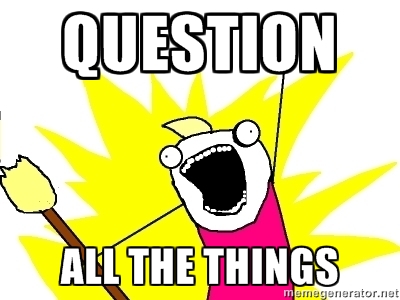If the girl had the sword and the boy had to wait for her
Is it a crime against childhood to teach children to read critically? Kathryn Heyman thinks not.
This week, the Victorian Education Department released their Respectful Relationships program for state primary schools. In spite of the shock headlines reporting fairytales being ‘banned’, the program simply helps teach children how to deconstruct those stories. In other words, it teaches them how to read. As Victorian premier Daniel Andrews said, with admirable restraint, “We are very much in favour of kids reading stories and then sitting down and talking about them. It is called learning.”
If you don’t look at stories (of all kinds) with a critical eye you can’t think about how they’re shaping you. It’s quite a good idea to think about how various bits of culture are shaping us, in case we don’t want to be shaped in that way.
Critics of the Respectful Relationships program seem to want it both ways. On one hand, fairy stories are sacred, innate to human life and, like the Bible, have been handed to us by divine forces – but have no real impact on the listener or the reader. Harmless, innocent, fun. On the other, if we change them, or merely critique them, terrible things will happen. Boys will grow breasts, girls will wield swords, society will fall apart.
Servants will talk about what chumps the people upstairs are.
In one interview, Australian Catholic University academic Kevin Donnelly said, “It’s a concerted campaign across kindergarten to year 12 to indoctrinate children with a gender and sexuality program that is biased and ideological.” Which seems to suggest the stories in which men lock women up for failing to be meek, or stories in which women are loved when they are pretty and silent (ideally asleep) – that these stories are not concerted campaigns to indoctrinate children with an ideological position.
Well I would say they’re not necessarily concerted campaigns. They can easily be just based on everyone’s unquestioned assumptions.
In fact, the Respectful Relationships program aims to have children look at traditional fairytales and take on a “fairytale detective” role, asking what the messages are, and what might happen, for instance, if “the girl had the sword and the boy had to wait for her to rescue him”. It does not – as far as I can tell – advocate locking boys up in towers or making them wait to be rescued. It simply suggest interrogating the text. As the Premier said, “That’s called learning.”
But it questions the unquestioned assumptions that wrote the girl as imprisoned and the boy as her rescuer, and that makes people who share the unquestioned assumptions feel very uneasy.
When children hear stories, they are making sense of the world, and casting themselves in the various roles. That’s one of the reasons girls grow up wanting to be princesses, if they’re not careful.
That plus all the princess merchandise in the toy shops and all the pink frilly stuff in the clothes shops.
Question all the things!


My mother read us fairy tales. She taught us to think critically about them (she was really good at critical thinking as long as you didn’t turn it against what she believed – ghosts and God). I don’t think it ruined my enjoyment at all. In fact, I often think it encouraged my interest in writing. If these neat stories were just made up, it meant I might be able to make up neat stories, too.
Well, all they really need to do is add Robert Munch’s The Paper Bag Princess to the reading list. That pretty much deconstructs the whole genre in a few short pages ;-).
Seconding Steve Watson’s suggestion – it’s a very good book (my kids had it when they were little) and, as he says, turns the whole genre on its head.
The kids don’t even need to be able to read – it’s on YouTube.
https://www.youtube.com/watch?v=cRTxJnCmBks
Better save Angela Carter’s The Bloody Chamber for the older kids–and the grown-ups.
https://en.m.wikipedia.org/wiki/The_Bloody_Chamber
I feel like I must be so weird– I liked the idea of being a princess as a little girl, because it would mean my family and I would be very rich and I would be able to give other people orders, including many adults.
I wasn’t at all interested in princes, liked the idea of wielding swords myself, and didn’t expect to be prettier, nicer, or better liked. It was just a power fantasy.
Listens to Samantha. Nods head. Backs carefully and quietly out of the room…